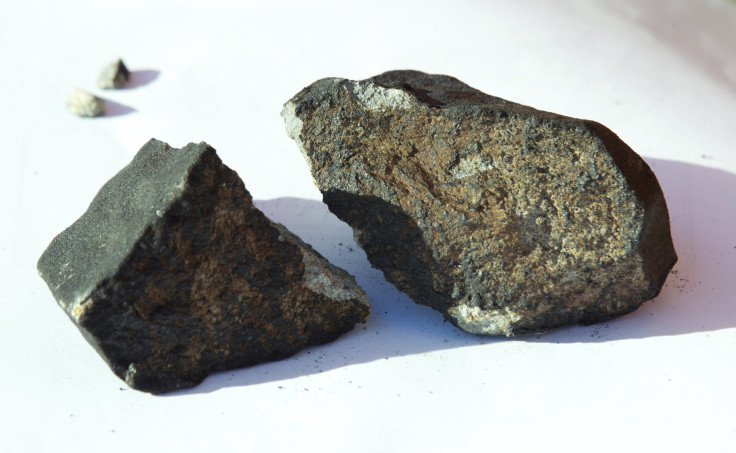Meteorites Linked To Last Week's Mississippi Fireball Event Found
KEY POINTS
- Dozens of people reported seeing a fireball and hearing a loud boom last week
- The event likely resulted in "a lot" of material
- Several meteorites have been found, and meteorite hunters are searching for more
Meteorite hunters have found several meteorite pieces from the fireball event that caused quite a stir in Mississippi last week.
Dozens of people witnessed the fireball that graced the skies over Mississippi on the morning of April 27, with many of them reporting seeing bright lights and hearing a loud boom, according to the American Meteor Society (AMS). There have so far been 67 reports of a fireball seen from Alabama, Arkansas, Louisiana and Mississippi.
Interestingly, amateur fireball researcher Eric Rasmussen saw something rather odd in the weather radar data at the time the fireball appeared.
"A large cloud appeared and then disappeared near the end of the fireball's path right after the event occurred," AMS noted. "This cloud was found in data from three different NEXRAD radar stations."
Consultations with NASA scientist Marc Fries confirmed that the odd cloud was actually proof of falling meteorites. He and his wife, Linda Welzenbach Fries, lived just about 300 miles from the area where the meteorites would have fallen, so the couple went on the hunt for the meteorites Saturday. Sure enough, Linda found the first meteorite, and Marc discovered the second one. The AMS shared quite a few photos of the interesting finds.
Meteorites Recovered in Mississippi from April 27th, 2022 Morning Fireballhttps://t.co/1s6fWIE7sG
— AMSMETEORS (@amsmeteors) May 2, 2022
More meteorite hunters have since arrived at the scene to search for more meteorites. As per Marc's write-up about the finds, six pieces of meteorites ranging from 1 to 150 grams have been discovered. Those who have recovered meteorites related to the event are being advised to contact the AMS so they can be added to the database.
The event is expected to have created "a lot of material," according to the AMS. However, searches have been limited because much of the land is on thick woods where meteorite recovery is "almost impossible."
So what is it that makes meteorites important?
Meteorites are the space rocks that survived the trip through the Earth's atmosphere and reached the ground. Not only are these rocks much older than the rocks here on Earth, but they also provide scientists with samples from other celestial bodies such as planets, asteroids or comets, the American Museum of Natural History explained.
This means meteorites aren't just interesting mementos from such fireball events, but they also give scientists a chance to study other bodies. Furthermore, some of these objects also carry the material from the early solar system, so they can also help scientists understand our solar system's origins.

© Copyright IBTimes 2025. All rights reserved.






















